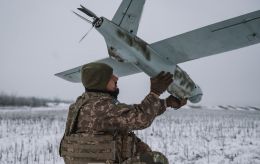Historic moment: Ukraine to move a step closer to EU membership tomorrow
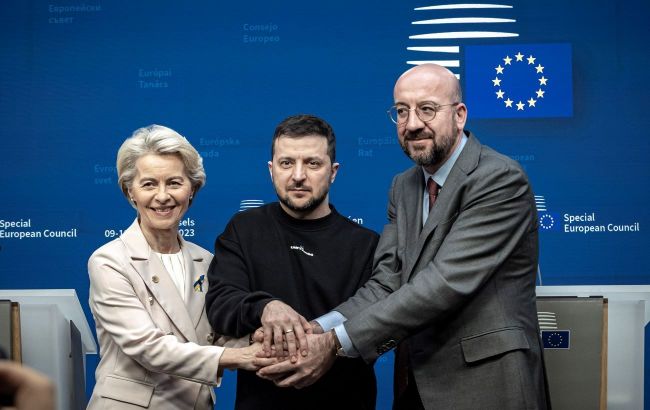 Photo: President Volodymyr Zelenskyy and EU leaders Ursula von der Leyen and Charles Michel (Getty Images)
Photo: President Volodymyr Zelenskyy and EU leaders Ursula von der Leyen and Charles Michel (Getty Images)
This week, the European Union formally initiates the procedure for negotiations regarding Ukraine's accession. The official start will take place tomorrow, June 25, at the First Intergovernmental Conference in Luxembourg.
For more details on this, including nuances and possible terms of the negotiation process, check out the material from RBC-Ukraine.
Contents
- What negotiation frameworks are and why this is a historic moment
- What to expect from the First Intergovernmental Conference Ukraine-EU
- How the negotiation procedure will proceed
- When the negotiations will end and Ukraine joins the EU
What negotiation frameworks are and why this is a historic moment
Last week, the European Union approved a negotiation framework for Ukraine, which defines the format and order of accession negotiations to the bloc.
Ukraine submitted its application for accession less than a week after Russia's full-scale invasion in February 2022. In June of the same year, it was granted candidate status, and after fulfilling additional conditions in December 2023, the European Commission recommended starting negotiations.
It may seem that the process of European integration has slowed down. However, the start of negotiations sends another strong signal of solidarity with Ukraine, beyond financial support.
According to the Belgian presidency of the EU, member states agreed to start negotiations on June 25 in Luxembourg. The negotiations will begin at 03:30 local time or 04:30 p.m. Kyiv time.
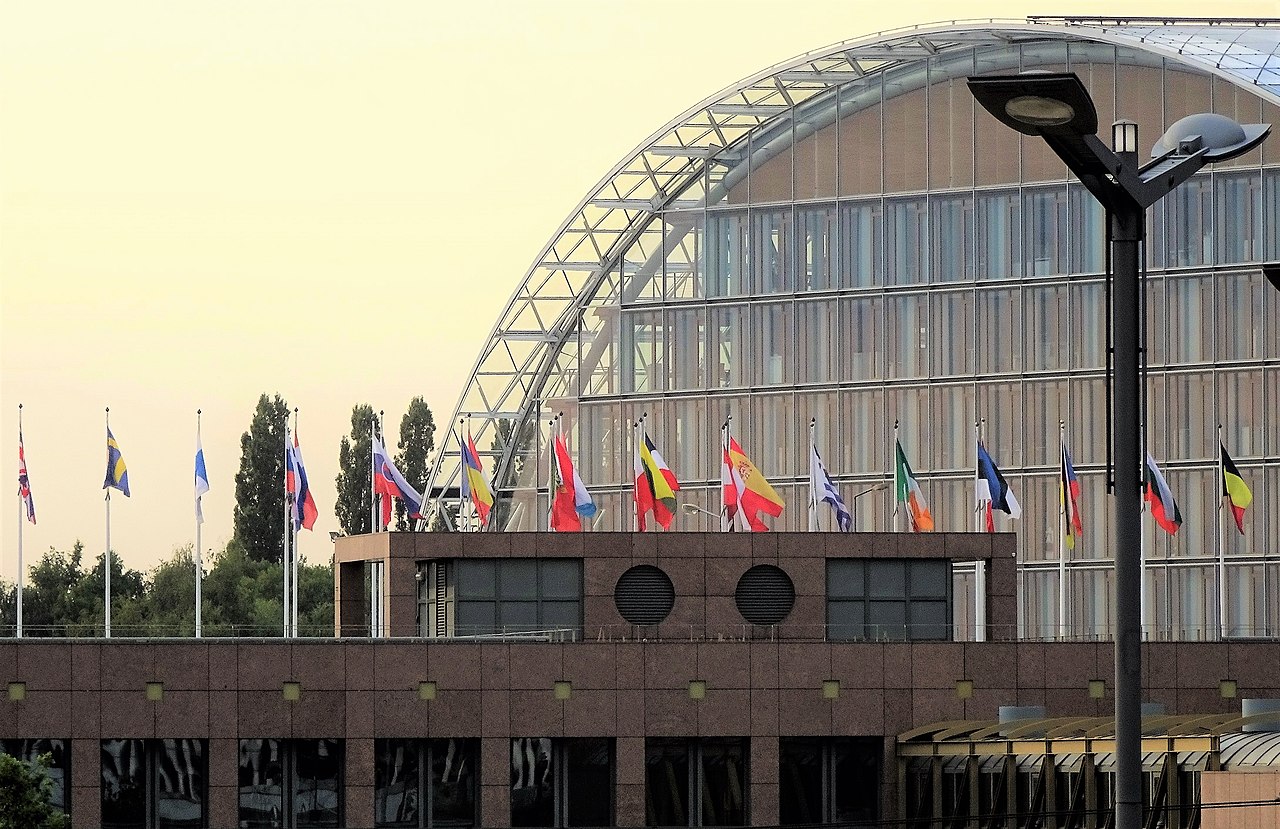
Photo: the opening ceremony of the negotiations will take place in Luxembourg (wikimedia.org)
Let's note, the negotiation framework consists of three parts - principles, content, and procedure. The draft for Ukraine is largely identical to the negotiation frameworks for Albania and North Macedonia in 2020, but takes into account the context of the Russian invasion.
According to Minister of Foreign Affairs Dmytro Kuleba, Ukraine has set a record in terms of the time from application to the start of negotiations. For comparison, current EU members took longer to begin their negotiation processes: Estonia took three years, Hungary four, and Lithuania and Latvia each five.
President Volodymyr Zelenskyy called the negotiation framework a historic moment.
"This achievement, fought for at various levels, paves the way for the start of negotiations next week. These are truly historic moments. Ukraine is and will always be part of a united Europe," he emphasized.
Today, at the meeting of the EU Foreign Affairs Council, Kuleba assured that in the future Ukraine will make a significant contribution to collective defense, foreign policy, transition to green energy, economic development, and other areas.
What to expect from the First Intergovernmental Conference Ukraine-EU
The First Intergovernmental Conference Ukraine-EU will mark the formal start of accession negotiations.
The Ukrainian delegation will consist of 35 individuals, including Vice Prime Minister for European and Euro-Atlantic Integration Olha Stefanishyna as its head. Also, the Head of the Office of the President Andrii Yermak, First Deputy Speaker of the Verkhovna Rada Oleksandr Kornienko, as well as several other government officials and experts will be included.
An intergovernmental conference (in EU enlargement policy) is an official negotiation session between the candidate country and the governments of EU member states. It is convened to discuss and agree on the future accession treaty.
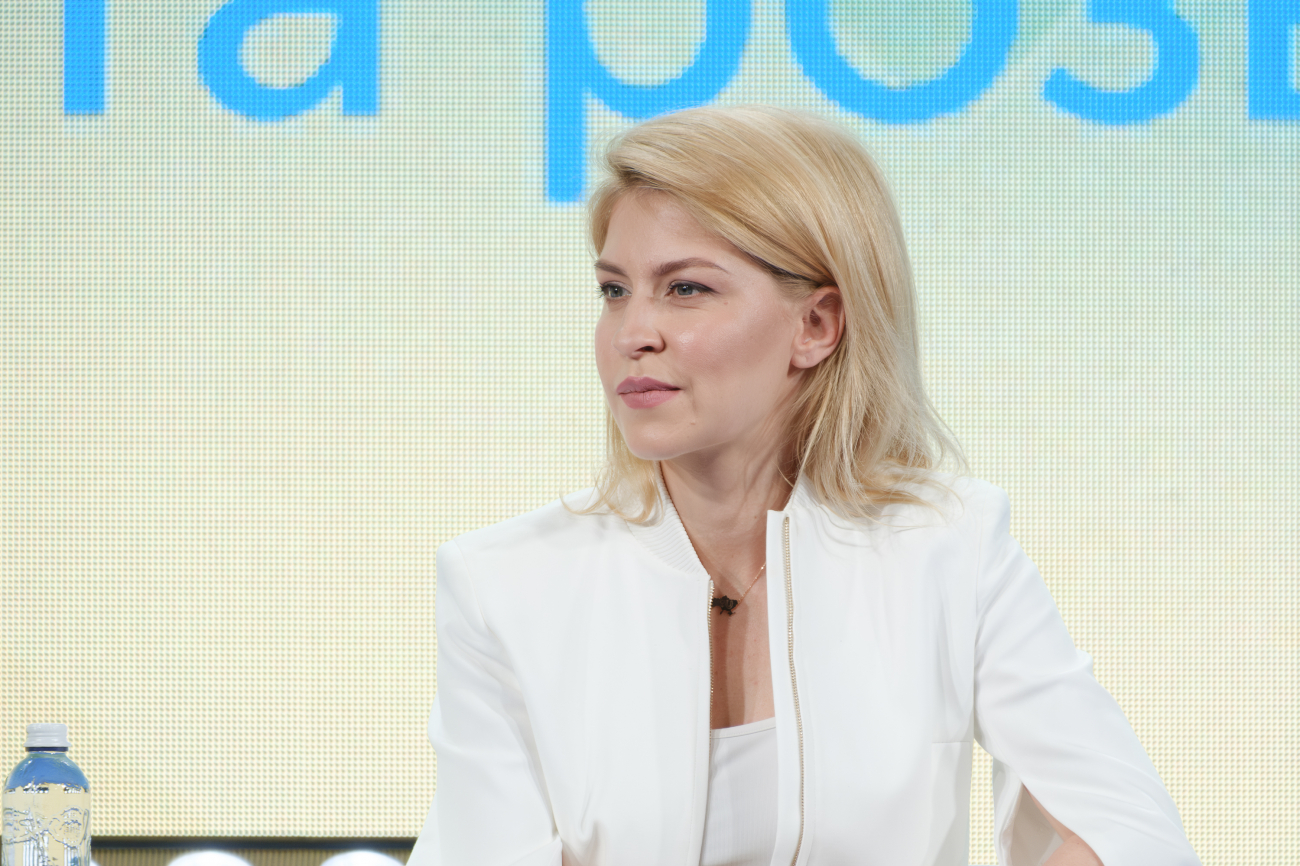
Photo: Olha Stefanishyna, Vice Prime Minister for Eurointegration, appointed as Ukraine's chief negotiator (Vitaliii Nosach/RBC Ukraine)
At the First Conference on June 25, the presentation of the negotiating delegations, the negotiation framework, and Ukraine's negotiating position are expected.
"Next, we will start detailed technical negotiations on dozens of different chapters of the future agreement," said Prime Minister Denys Shmyhal.
Representing the EU at the conference will be Belgian Minister of Foreign Affairs Aja Lyabib and EU Commissioner for Enlargement and European Neighborhood Policy Oliver Varhelyi. Member states will be represented at the level of European Affairs Ministers. A joint press conference will follow the event.
According to Stefanishyna, the accession process will be lengthy. Along this path, Ukraine must fully adapt its legislation, legal system, and economy to EU conditions. This includes ensuring Ukraine can operate within the EU's internal market without barriers to the movement of citizens.
If negotiations officially begin tomorrow, the next stage is expected in July.
"During this time, we will assess the compliance of our legislation in a number of areas and understand our obligations," she stated.
In an interview with AP, she emphasized her role in opening negotiations. It's possible President Zelenskyy will participate in the ceremony, though it's unclear if he will do so in person or online.
A survey earlier this year indicated that citizens of EU countries generally support Ukraine's application but are skeptical about accelerating the process. According to Stefanishyna, Ukraine does not seek special treatment and is not "asking for any discounts."
"It’s a big day for everybody. It has been around two years since Ukraine applied for membership. The war is still raging on, but the accession is starting right now," she added.
How the negotiation procedure will proceed
As Deputy Head of the Office of the President Ihor Zhovkva informed, a new model will be based on a cluster approach.
"The Association Agreement between Ukraine and the European Union consists of 35 chapters, and a delegation will be established for each of them," he said.
Previously, in negotiations with a candidate country, only one chapter was opened at a time, and until it was closed, others remained unopened. The essence of the new approach is that negotiations with Ukraine will open simultaneously on several chapters grouped into clusters.
"We hope that the first cluster will be opened soon," emphasized the Deputy Head of the Office of the President, suggesting that negotiations on individual chapters could be quite intense.
Negotiations on EU accession are not negotiations in the classical sense. Their goal from the candidate's side is to meet membership criteria; from the EU's side, it is to achieve readiness to accept a new member.
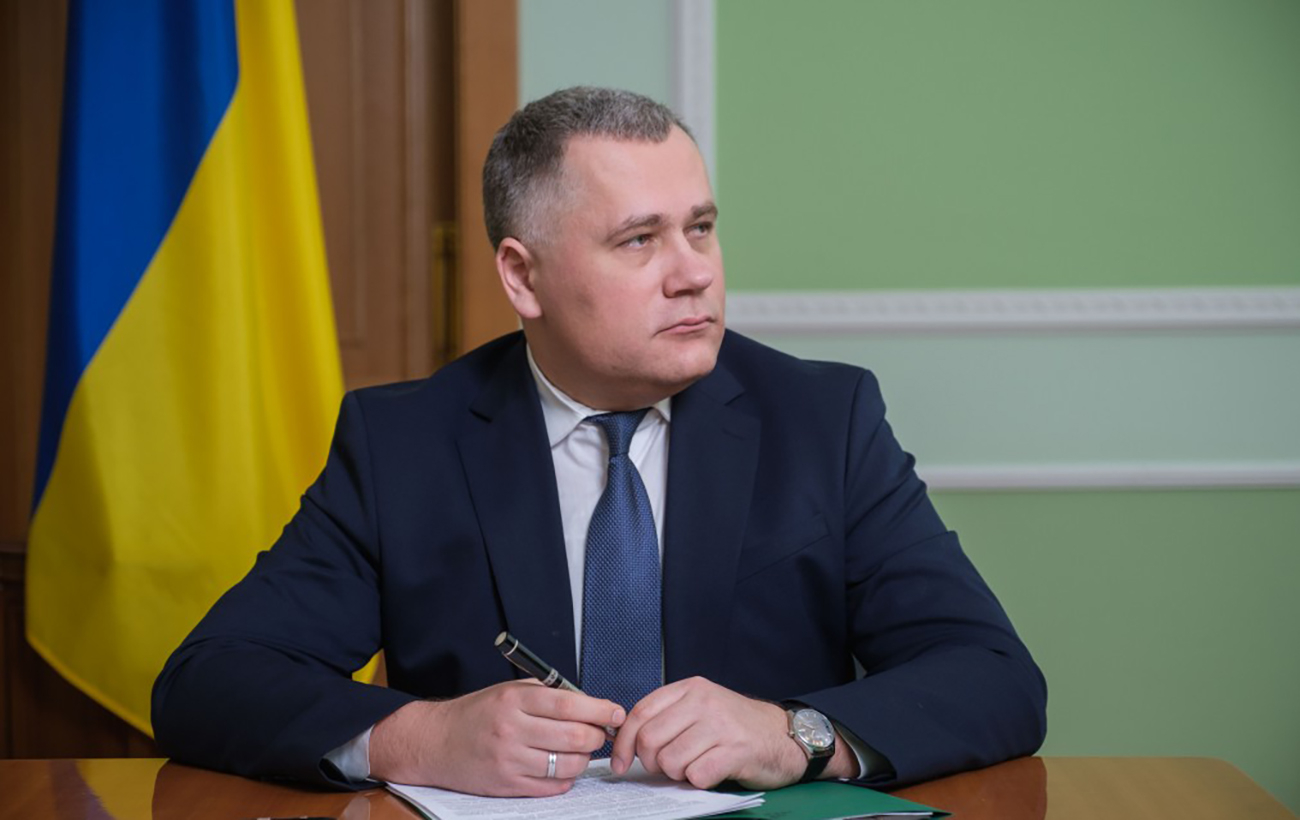
Before opening the first cluster, the European Commission must conduct a screening and submit a report on Ukraine's legislation compliance with European law for each cluster. Based on this report, the level of compliance and the extent of further work will be understood.
As stated by the Deputy Chair of the Verkhovna Rada Committee on Foreign Affairs, Arsenii Pushkarenko, Ukraine has independently analyzed 28,000 legislative acts and concluded that it needs to fully or partially implement 3,000 EU laws.
"Over the next six months, the European Commission will conduct screenings of Ukrainian legislation. This is an official procedure," he said.
Cluster #1, Fundamentals of the EU Accession Process, is pivotal throughout the negotiations. It is opened first and closed last, so achieving all criteria for other clusters like Internal Market, Competitiveness and Inclusive Market, Green Agenda, Resources, Agriculture, and Foreign Policy does not imply the negotiations are complete until Cluster #1 is closed.
Prerequisites for opening such clusters include meeting interim criteria for the first one, subsequent positive assessments by the European Commission, and approval by EU member states.
What are the negotiations about? According to the procedure, the candidate must comply with current EU law regarding all negotiating chapters before accession. Significant changes in certain areas may cause internal shocks or the candidate may objectively be unable to meet requirements. In such cases, the candidate proposes transitional periods, which are also subject to negotiation. Financial and administrative matters are also part of the negotiations.
Key assessment is provided by the Progress Report on Ukraine within the EU Enlargement Package. The next assessment is expected in October-November 2024, with conclusions discussed at subsequent intergovernmental conferences. Economic criteria will be monitored based on the implementation of the Ukraine Facility plan.
Delays or regressions in meeting criteria may lead to penalties, such as suspension of negotiations in specific areas or altogether, reduction in EU funding, or hindrance to swift integration, access to EU programs, or advantages in the European market.
When the negotiations will end and Ukraine joins the EU
The duration of preparation for both a candidate country like Ukraine and the EU itself for accepting a new member is not defined in any document. There are only stages that each country must go through. Therefore, the timeline depends on how quickly Ukraine meets the membership criteria and the readiness of the EU and all its members for Ukraine's accession.
From Ukraine's side, the pace will depend on how swiftly and effectively we align our legislation with EU law across each chapter. The European Union also needs to prepare for enlargement. Discussions have been ongoing for a long time, with the adoption of a roadmap planned for the summer of 2024.
After the negotiations are concluded, the Agreement on Ukraine's accession to the EU will be formulated. It will need to be signed and ratified by the European Parliament, the parliaments of member states, and the Verkhovna Rada (unicameral parliament of Ukraine). Following ratification, from the signing until Ukraine's accession date, Ukraine will be able to propose amendments to EU decisions and will have active observer status in all EU bodies and institutions.
How long this process will take is uncertain. The minimum timeframe from the start of negotiations to accession was nearly two years for Austria, Finland, and Sweden. Most countries waited between 4 to 7 years.
In Estonia's case, it took 10 years. In a recent interview with RBC-Ukraine, Estonian Ambassador Anneli Kolk emphasized that predicting timelines is difficult because the process depends on many factors. However, the speed of implementing reforms gives hope that Ukraine might manage it in less than 10 years.
At the beginning of 2023, Prime Minister Denys Shmyhal stated that Ukraine would be ready for accession in two years. Deputy Prime Minister Olha Stefanishyna also mentioned similar timelines. However, recently, such optimistic forecasts have not been echoed.
Completing accession negotiations within two years is unlikely for Ukraine, even if reforms accelerate significantly. Previously, European Council President Charles Michel expressed hope that all current candidates could join by 2030 if "both sides do their homework." Such a timeframe currently seems the most realistic.
Sources: statements from President Volodymyr Zelenskyy, Minister of Foreign Affairs Dmytro Kuleba, Prime Minister Denys Shmyhal, an interview with Vice Prime Minister for European Integration Olha Stefanishyna for AP, and data from the website eu-ua.kmu.gov.ua.

